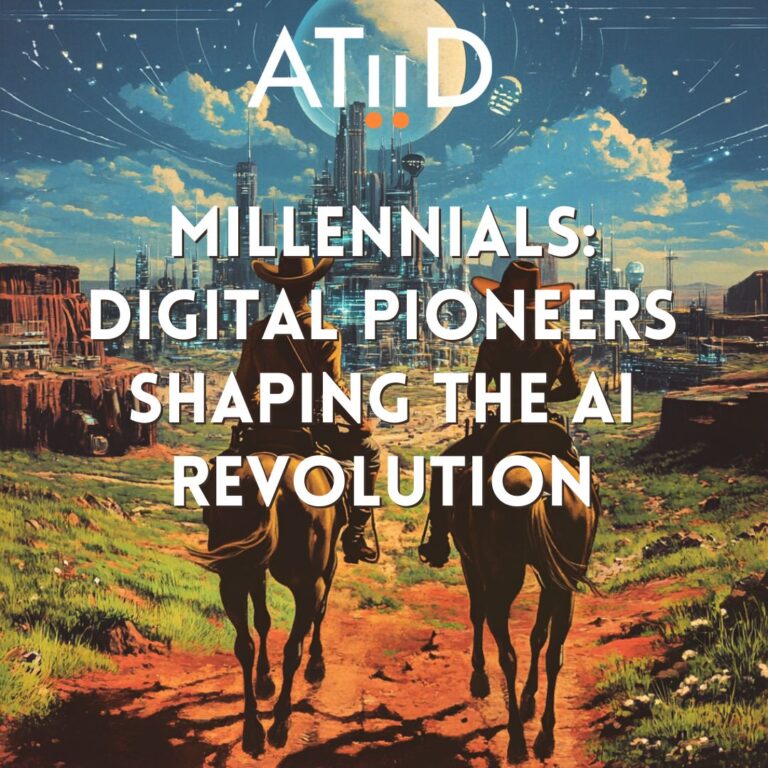Millennials: Digital Pioneers Shaping the AI Revolution
Hey, fellow millennials, are you ready to lead a historical revolution?
We were the first generation to grow up with the internet as a tool in our toolbox. We’ve witnessed the transformation from dial-up connections and clunky desktop computers to the seamless digital ecosystem that now powers our lives. We didn’t just adapt to technology, we evolved with it.
Unlike previous generations who had to learn and adapt to digital tools mid-career, technology has been woven into the fabric of our lives from the beginning. We were the first to navigate social media as teenagers, the first to integrate smartphones into our daily routines, and now, we’re the generation leading the companies that are building and deploying artificial intelligence.
Consider Sam Altman at OpenAI, the creators of ChatGPT, or the countless millennial founders and leaders at AI startups reshaping industries. We’re not just users of this technology, we’re its architects and visionaries.

Born Adaptable, Built for Change
Adaptability isn’t just a skill we’ve acquired; it’s in our generational DNA. We entered the workforce during the 2008 financial crisis, navigated the gig economy’s rise, survived a global pandemic that transformed work overnight, and now we’re riding the wave of AI disruption.
While some see each technological shift as a threat, we recognize it as an opportunity. When social media emerged, we didn’t just adopt it, we transformed it into platforms for entrepreneurship, activism, and community building. When remote work became necessary, we didn’t just adjust, we pioneered new workflows and digital collaboration methods that are now standard practice.
This innovative spirit positions us perfectly for the AI revolution. We intuitively understand that technology isn’t just about automation or efficiency, it’s about expanding human potential.
The Millennial Advantage in an AI-Powered Workplace
Our relationship with technology gives us a distinct edge in navigating the AI-transformed workplace:
We speak both human and machine. Growing up straddling both analog and digital worlds, we can translate between technical possibilities and human needs. We understand AI’s capabilities but also recognize its limitations—a crucial perspective as organizations integrate these tools.
We value purpose over process. Millennials have consistently prioritized meaningful work over rigid adherence to “how things have always been done.” This mindset is essential when working with AI, which demands we question established processes and reimagine workflows from the ground up.
We balance technological enthusiasm with ethical awareness. Having witnessed the social media era’s unforeseen consequences, we approach AI with both excitement and necessary caution. We’re pushing conversations about responsible AI development, algorithmic bias, and ethical implementation—ensuring technology serves humanity rather than the reverse.
We collaborate naturally across boundaries. The complex challenges of AI implementation require cross-functional teams and diverse perspectives. Our generation’s collaborative approach to problem-solving and comfort with distributed, digital teamwork creates the perfect foundation for leading AI integration.
Reinvention Is Our Superpower
If there’s one thing millennials have mastered, it’s reinvention. Many of us have already pivoted careers multiple times, developed side hustles into businesses, and transformed our skill sets to match evolving market demands.
This capacity for reinvention is precisely what the AI era demands. The jobs of tomorrow won’t just require technical expertise, they’ll require the ability to continuously learn, adapt, and create new value as AI capabilities expand. While AI excels at predictable, routine tasks, it struggles with creativity, emotional intelligence, and contextual understanding, areas where millennials often shine.
For those whose roles are being disrupted by automation, our experience with reinvention is an invaluable asset. We know that career paths aren’t linear, that skills are transferable, and that value comes from our uniquely human capabilities, our creativity, critical thinking, and emotional intelligence, rather than just technical execution.
Leading with Optimistic Realism
Perhaps our greatest contribution to the AI revolution is our balanced perspective. We’re neither naively techno-utopian nor reflexively pessimistic. Instead, we approach AI with what might be called optimistic realism, recognizing both its transformative potential and the very real challenges it presents.
This balanced view allows us to lead AI adoption thoughtfully. We can advocate for innovation while ensuring organizations don’t lose sight of human impact. We can push for efficiency while safeguarding against inequitable outcomes. We can embrace automation while creating pathways for human workers to develop new, AI-complementary skills.
The Path Forward
As AI transforms our workplaces, millennials have a crucial role to play:
- We must lead by example, demonstrating how to work effectively alongside AI rather than against it.
- We must continue developing the uniquely human skills that complement rather than compete with AI capabilities—creativity, emotional intelligence, ethical reasoning, and collaborative problem-solving.
- We must design organizational cultures that balance technological innovation with human well-being, ensuring AI serves as a tool for human flourishing rather than a mechanism for exploitation.
The AI revolution isn’t happening to us—it’s happening with us and, in many cases, because of us. As the generation that has grown up navigating technological change, we’re uniquely positioned to ensure this transformation enhances human potential rather than diminishes it.
At ATiiD, we’re partnering with forward-thinking millennials and organizations to harness AI’s potential while keeping humans at the center. We’re creating workplaces where technology amplifies human creativity, connection, and contribution rather than replacing it.
